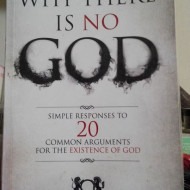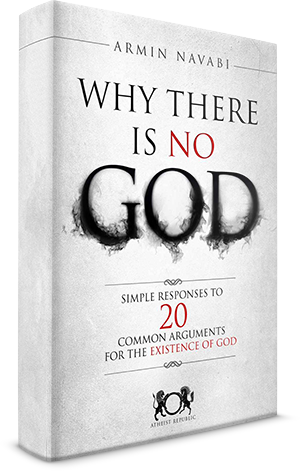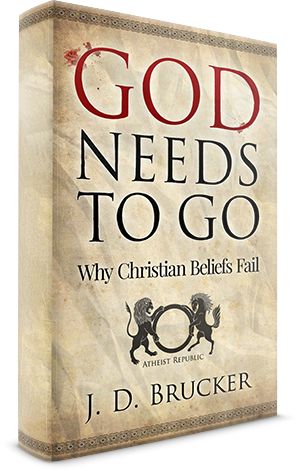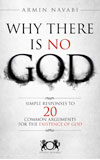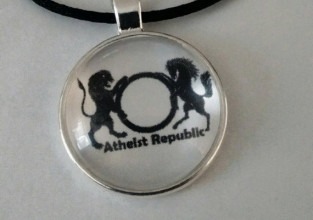
When other arguments fail, many theists turn toward an appeal to faith. This argument takes several forms:
- "I don't need evidence; I just have faith."
- "If you had faith, you'd know that it was true."
- "God cannot be comprehended or understood. You just have to believe."
In every case, the appeal to faith is ultimately fallacious (1). By this definition, an appeal to faith is also an abandonment of reason; when one has no logical argument for a claim, they turn to faith as an explanation for their belief. Stating that you have faith in something might explain why you believe in it, but it does nothing to compel anyone else to believe the same way. The mere fact that one has faith in a belief system cannot possibly be considered reason enough for another to adopt that belief system as well.
The Absurdity of Faith as an Argument
Faith is often invoked in an argument when the person making a claim runs out of rational explanations to support his beliefs. It's a distraction from the fact that there is no real evidence. Once faith enters the equation, the argument can quickly dissolve into absurdity, as absolutely any claim could be "supported" by faith.
You might believe that your dog is secretly a werewolf, that you are abducted by aliens every night while you sleep, or that the president is actually a holographic illusion. You have no proof to substantiate these claims, but you have faith that you're correct. That doesn't mean anyone would be compelled to believe you, however; if anything, the strength of your conviction might be viewed more as a sign of insanity than the truth of the claim. If you make a claim, you must be prepared to back it up with evidence.
Some people might try to defend their argument from faith by saying something like, "Don't you have faith that the sun will rise tomorrow?" But this is not analogous. We can know with a high degree of certainty that the sun will rise because we know the natural processes that govern the movement of the earth in our solar system. From observable evidence, we know that the world works in a certain way. We don't need faith; we have evidence. The same cannot be said for a claim that has no evidence.
God Cannot Be Defined
Some theists do not come out and make an appeal to faith directly. Instead, they'll say things like "God cannot be described" or "God cannot be comprehended by the human mind." Regardless of the form these claims take, they always come down to an appeal to faith. If you cannot comprehend or describe something, you can't possibly have a rational justification for believing in it. An indescribable god may be unfalsifiable, but it is also unprovable. For example, if I were to present an archaeological research paper regarding a completely new type of pottery that had never been seen before and was previously unknown of, my colleagues would expect me to accurately describe this pottery in order to clarify its typography and confirm its existence. If I claimed not to know what it even looked like, any explanation would not make sense in the context of my claim that this pottery exists. If the pottery existed, in order to make the claim of it being a reality, I should at least be able to clarify its defining characteristics, such as color, glaze, decoration, thickness, form, etc. It simply wouldn’t make sense for me to claim such a pottery exists yet not even be able to clarify whether it was brown or not. If I don’t know or could not discover its characteristics, then I also can’t know if it exits.
People faced with the idea of a god who cannot be described or comprehended may feel that there is insufficient evidence to say confidently that the deity does not exist. They do not, however, have any reason to believe that it does, and barring evidence in favor of a deity, they will continue living their lives as though there were no God.
The Irrelevance of Faith
Believing in something does not make it true. Reality exists independently of your beliefs. It's possible to believe in things that are false, and reality continues to be true even if you don't believe in it.
For example, say you are given a wrapped package. You believe that the package contains a diamond necklace. However, in reality, the package contains a Game of Thrones DVD box set. No matter how firmly you believe in the diamond necklace, that does not change the actual contents of the package. Your faith in the necklace does not affect the nature of what is actually inside of the box.
When faced with any given situation or decision, there are many more ways to be wrong than to be right. With the hypothetical wrapped box, for example, you could guess dozens or thousands of times what might be inside, and all of those guesses might be wrong. If you have no evidence to support your claim, there is no reason to assume that your guess is correct, and there is certainly no reason why anyone else should believe that your guess is the right one.
References:
- Bennett, Bo. "Appeal to Faith." Logically Fallacious: The Ultimate Collection of over 300 Logical Fallacies. EBookIt.com, 2012.




